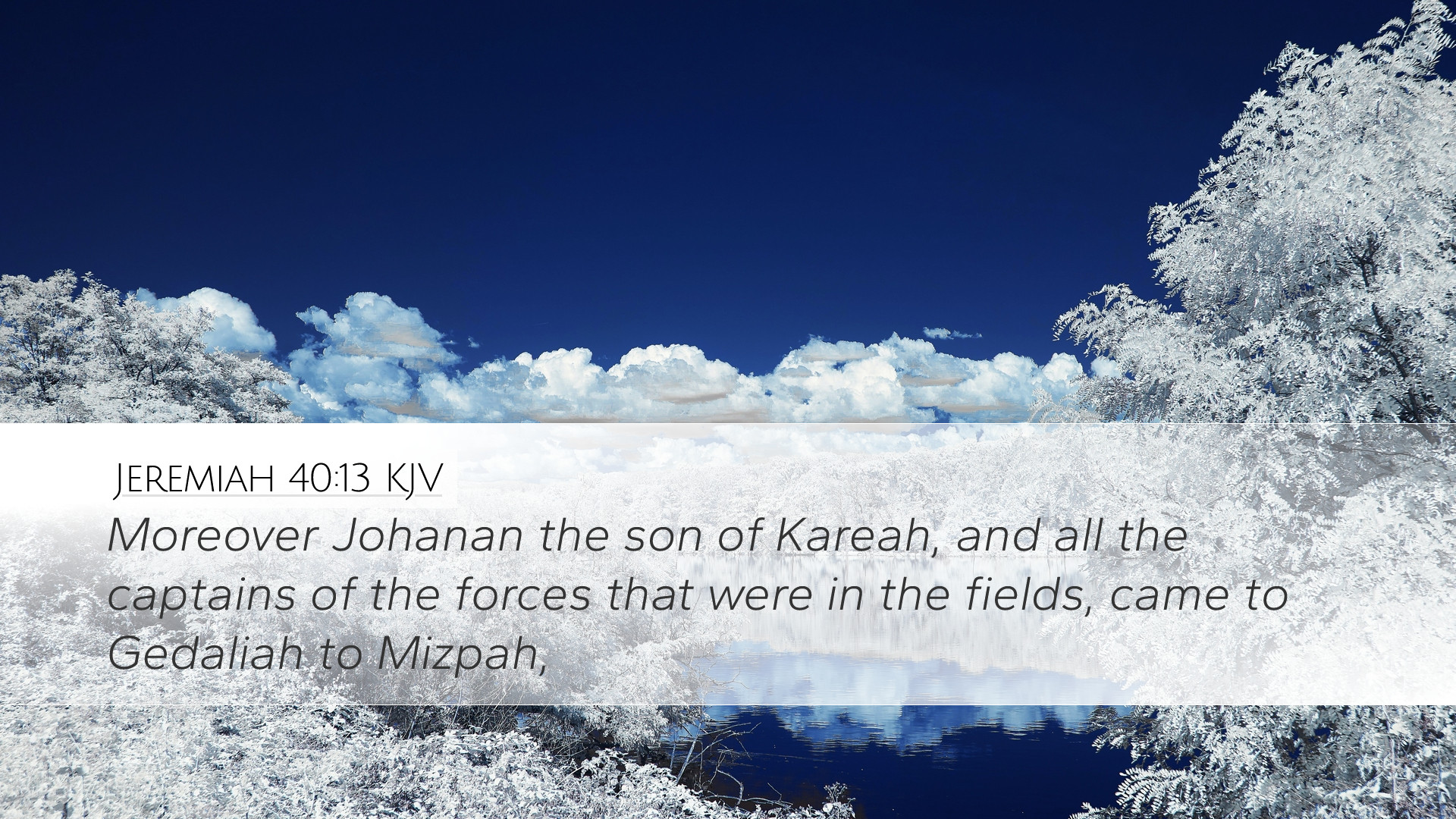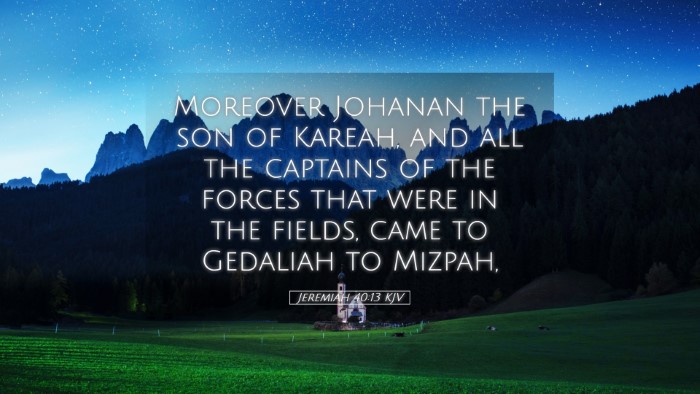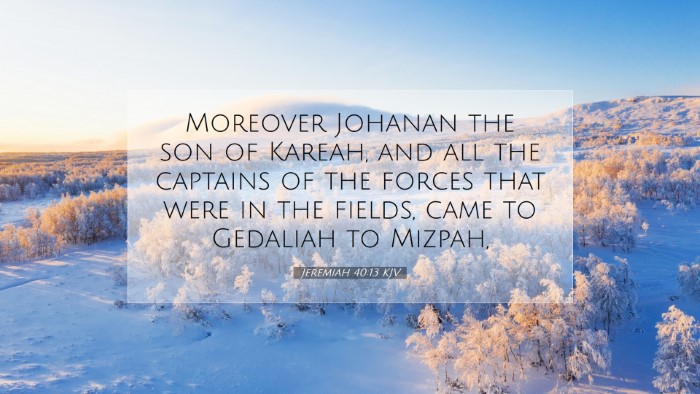Bible Commentary on Jeremiah 40:13
Jeremiah 40:13 serves as a pivotal moment in the narrative of the Book of Jeremiah, providing insights into the aftermath of the Babylonian exile and the lives of those left in Judah. The verse states:
"Moreover, Johanan the son of Kareah and all the captains of the forces that were in the fields came to Gedaliah to Mizpah."
Contextual Overview
In the backdrop of Jeremiah 40, the chapter outlines the circumstances following Babylon's conquest of Jerusalem. Gedaliah, appointed as the governor over the remnants of Judah, becomes central to the narrative as he embodies hope for restoration amidst despair.
Analysis from Matthew Henry
According to Matthew Henry, this passage illustrates the continual tension between the remnants of Israel and foreign powers. Henry emphasizes the significance of Gedaliah's appointment and its implications for the people’s future. He posits that the coming of Johanan and the captains indicates a growing concern among those who have survived the fall of Jerusalem.
- Leadership of Gedaliah: Henry notes Gedaliah’s role as a leader tasked with rebuilding and maintaining order. He interprets this as indicative of God’s providence, allowing a remnant to remain and strive for restoration.
- Gathering of Forces: The arrival of Johanan and his captains suggests a response to Gedaliah’s leadership and a desire for unity amongst those left in the land. Henry reflects on the necessity of cooperation during times of crisis and uncertainty.
Insights from Albert Barnes
Albert Barnes expands on the dynamics of leadership presented in this text. He points out that Johanan represents a military perspective in contrast to Gedaliah’s more diplomatic approach.
- Conflict of Interests: Barnes highlights the potential for conflict between military leaders like Johanan and political figures like Gedaliah. This dynamic serves as a metaphor for the struggles faced in governance after a period of turmoil.
- Impending Threats: Barnes warns of the impending dangers that lurk beyond the borders of a weakened nation. He interprets Johanan's arrival as a sign of unrest and the need for vigilance among the people.
- Call to Unity: Importantly, Barnes depicts Johanan's meeting with Gedaliah as a critical action toward solidarity, expressing that coalescence among the leadership can lead to stability.
Reflections from Adam Clarke
Adam Clarke offers a thorough exegetical approach to the text, delving into the socio-political climate of the time. He provides a deep dive into the implications of Johanan's actions.
- Historical Context: Clarke places emphasis on understanding the time frame of this passage, noting the historical significance of the Babylonian influence and the reactions of those still in the land.
- Personal Motivations: Clarke suggests that Johanan’s approach was driven partly by personal interests and partly by a genuine concern for the welfare of the people. This duality portrays the complexities of leadership in times of crisis.
- Theological Implications: Clarke ties the narrative back to the overarching theme of God's faithfulness. He argues that despite human leadership's flaws, God's sovereign plan continues to unfold through chosen leaders like Gedaliah.
Theological Reflections
This verse, while historical, carries deep theological relevance. It offers insights into God's providential care in restoration. The gathering of forces under Gedaliah's leadership signifies hope and divine intention amidst chaos.
- God's Sovereignty: The appointment and actions of Gedaliah serve as reminders that amid human disarray, God's sovereignty directs the course of history.
- Leadership and Community: The interplay between Gedaliah and Johanan speaks to the necessity of differing leadership styles within the Church and community. Unity amidst diversity can lead to restoration.
- Prayer and Guidance: Pastors and students are encouraged to seek divine wisdom in leadership roles, acknowledging the need for God's guidance in decision-making processes during tumultuous periods.
Conclusion
The commentary on Jeremiah 40:13 from Matthew Henry, Albert Barnes, and Adam Clarke reveals a rich tapestry of insights regarding leadership, divine sovereignty, and human agency. For pastors, theologians, and Bible scholars, this passage serves not only as a historical account but also as a profound reflection on the principles of governance and community in faith. As the Church navigates contemporary challenges, the lessons derived from this scripture can guide believers toward unity, discernment, and a steadfast reliance on God’s providential grace.


